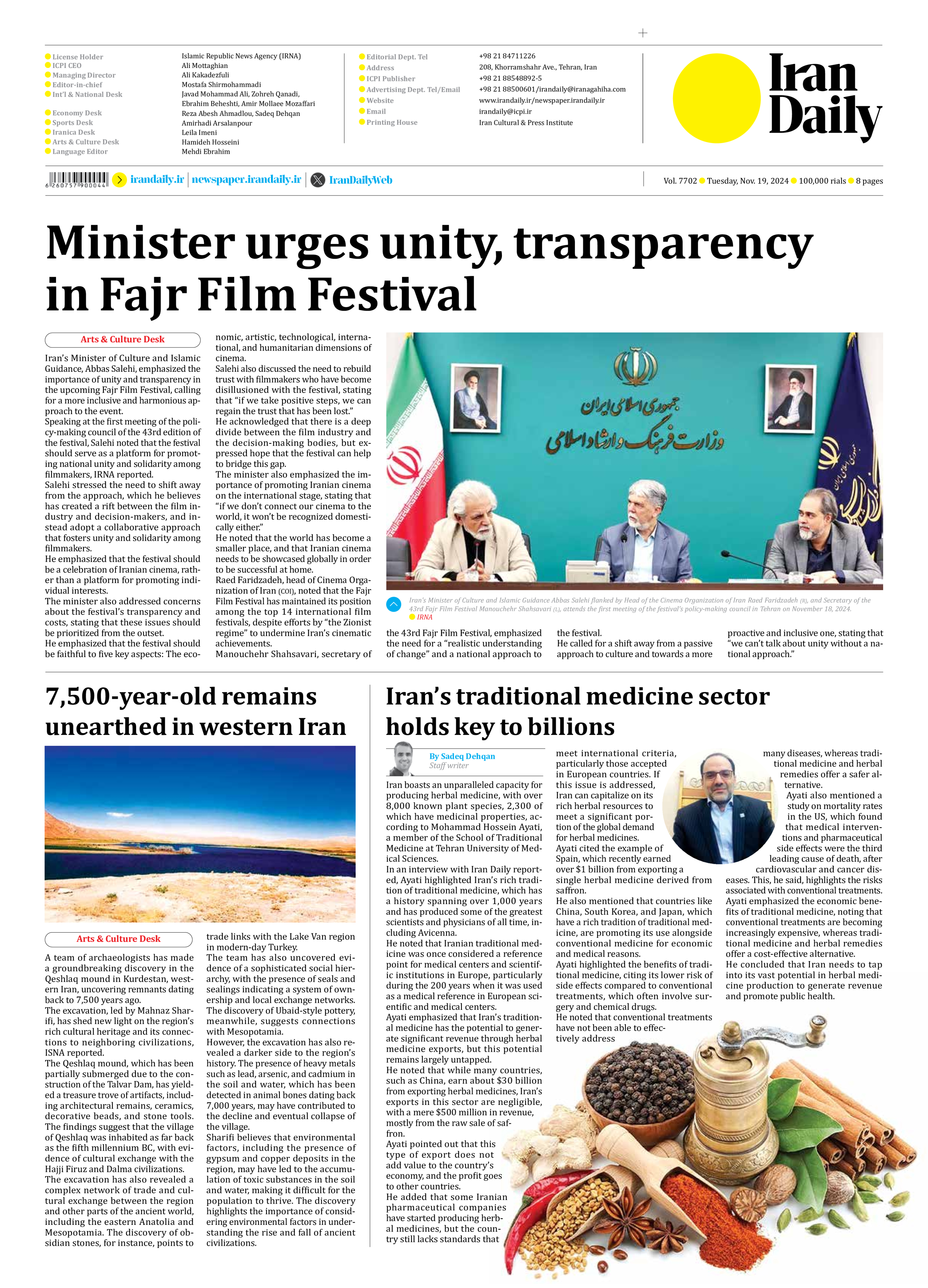
Iran’s traditional medicine sector holds key to billions
By Sadeq Dehqan
Staff writer
Iran boasts an unparalleled capacity for producing herbal medicine, with over 8,000 known plant species, 2,300 of which have medicinal properties, according to Mohammad Hossein Ayati, a member of the School of Traditional Medicine at Tehran University of Medical Sciences.
In an interview with Iran Daily reported, Ayati highlighted Iran’s rich tradition of traditional medicine, which has a history spanning over 1,000 years and has produced some of the greatest scientists and physicians of all time, including Avicenna.
He noted that Iranian traditional medicine was once considered a reference point for medical centers and scientific institutions in Europe, particularly during the 200 years when it was used as a medical reference in European scientific and medical centers.
Ayati emphasized that Iran’s traditional medicine has the potential to generate significant revenue through herbal medicine exports, but this potential remains largely untapped.
He noted that while many countries, such as China, earn about $30 billion from exporting herbal medicines, Iran’s exports in this sector are negligible, with a mere $500 million in revenue, mostly from the raw sale of saffron.
Ayati pointed out that this type of export does not add value to the country’s economy, and the profit goes to other countries.
He added that some Iranian pharmaceutical companies have started producing herbal medicines, but the country still lacks standards that meet international criteria, particularly those accepted in European countries. If this issue is addressed, Iran can capitalize on its rich herbal resources to meet a significant portion of the global demand for herbal medicines.
Ayati cited the example of Spain, which recently earned over $1 billion from exporting a single herbal medicine derived from saffron.
He also mentioned that countries like China, South Korea, and Japan, which have a rich tradition of traditional medicine, are promoting its use alongside conventional medicine for economic and medical reasons.
Ayati highlighted the benefits of traditional medicine, citing its lower risk of side effects compared to conventional treatments, which often involve surgery and chemical drugs.
He noted that conventional treatments have not been able to effectively address many diseases, whereas traditional medicine and herbal remedies offer a safer alternative.
Ayati also mentioned a study on mortality rates in the US, which found that medical interventions and pharmaceutical side effects were the third leading cause of death, after cardiovascular and cancer diseases. This, he said, highlights the risks associated with conventional treatments.
Ayati emphasized the economic benefits of traditional medicine, noting that conventional treatments are becoming increasingly expensive, whereas traditional medicine and herbal remedies offer a cost-effective alternative.
He concluded that Iran needs to tap into its vast potential in herbal medicine production to generate revenue and promote public health.







